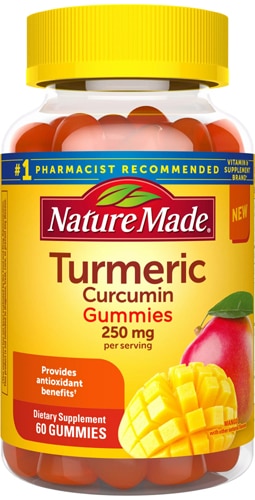Chances are,
dietary supplements are a staple in your daily routine. Many would argue supplements are synonymous with healthy living, because of the nutrients they supply and health benefits they claim to offer. Ironically enough, these little pills have been ingrained in everyday life for centuries. Yet, there’s still some level of confusion about supplement ingredients, manufacturing and regulation. Is there a clear definition of supplements? How do companies pack so much into something so small? Let’s find out.

Supplements: A Brief Definition
Dietary supplements are manufactured formulations that supply a certain nutrient or combination of nutrients at a level of potency deemed most effective. The exact mix of nutrients is selected based on their potential – and often specific – health benefits. The types of nutrients you may find in dietary supplements include:
- Essential vitamins
- Essential minerals
- Non-essential vitamins
- Non-essential minerals
- Herbs
- Botanicals
- Enzymes
- Probiotics
- Other ingredients
The Different Types of Dietary Supplements
That multivitamin you take every day is a type of dietary supplement. Multivitamins typically supply a host of
micronutrients, including vitamins and minerals. But there are other types of supplements. Some provide macronutrients, like protein; while other supplements are made with botanicals or even bacteria (the beneficial kind).
Vitamin supplements
You’ll find that vitamin supplements are either a single nutrient or a blended formula. Most single-nutrient formulas – like
letter vitamins – supply
essential vitamins; while a multivitamin might provide essential
and non-essential vitamins. Non-essential vitamins are ones your body can manufacture, though the list is rather short: biotin, vitamin D and vitamin K. In contrast, there are 13 essential vitamins, which your body
cannot produce sufficiently on its own. These must be obtained through diet and/or supplements.
Vitamin supplements come in a number of forms – from capsules and tablets to liquids and powders. This type of dietary supplement is created by extracting a very specific nutrient from a natural source, a synthetic source or a combination of the two. The distinctions between these various manufacturing processes are noteworthy and may impact how you
shop for vitamin supplements.
Natural sources – Natural sources include fruits, vegetables and animals. However, this doesn’t mean you’re getting the same benefit as the whole fruit or vegetable.
Food-based supplements are made from food concentrates or extracts that provide standard levels of the vitamin. The vitamin is as close to its natural form as possible, but this is a tedious and expensive manufacturing process.
Synthetic sources – Synthetic nutrients are manufactured in a lab. These man-made nutrients can have a molecular structure that’s identical to naturally occurring nutrients. Or, they might take on a different shape than what nature has to offer. These variations can be helpful, because some enzymes in your body only pair up with certain vitamin structures. Supplement manufacturers will rely on synthetic sources in order to provide the most bioavailable nutrient. Synthetic sources also tend to be the most economical and most abundant option.
Cultured sources – Some vitamins are manufactured through culturing. This is where the nutrient is grown in yeast or algae, and then harvested for vitamin supplements. Culturing is also used to make yogurt, kefir and sauerkraut. It’s not an uncommon practice by any means. And, it can create a more bioavailable nutrient.
Bacterial fermentation – Believe it or not, certain vitamin supplements utilize nutrient by-products of fermented bacteria. Vitamin B12 is a great example. Yes, this vitamin can be found naturally in animals. But the kind used to make supplements or fortified foods is biosynthesized by fermenting different bacteria. This industrial process creates a much higher yield. Riboflavin, vitamin D2 and vitamin K2 are also commonly sourced through bacterial fermentation.
Mineral supplements
While vitamins get most of the attention,
minerals are a key factor in optimal health, as well. They can be divided into two main categories: macrominerals and trace minerals. You need the seven macrominerals in large amounts and the nine trace minerals in minute doses. That does
not mean trace minerals are inconsequential. Iron, for one, is essential for carrying oxygen in your blood. When you don’t get enough of these nutrients through your diet, mineral supplements can help.
Mineral supplements take on many convenient forms, including liquid sprays, lozenges, capsules, gummies, tablets and more. Many are single-nutrient formulas. But you’ll also find blends of multiminerals or minerals mixed into multivitamins, making for a more balanced supplement. When it comes to manufacturing mineral supplements, the process is similar to vitamin formulas. There are natural sources, synthetic versions and even cultured minerals, like
New Chapter Fermented Zinc.
Herbs and botanicals
Herbal supplements sound like all-natural formulas, plucked straight from the vine. Indeed, they are derived from plants. Some are made with the entire plant, while others are formulated using only certain parts of the plant (the parts deemed most beneficial, of course!). For instance, turmeric is a flowering plant. But it’s the root that’s popularly used in
Indian recipes and for creating herbal supplements.
As natural as herbal supplements are, don’t expect a bottle of leaves on your doorstep. Well, you might get some leaves. Herbs and botanicals take on all different forms and can be consumed in myriad ways. Whole, dried herbs might be brewed into a tea or broken down into a powder for mixing with your favorite beverage. To avoid the earthiness of herbs, you can find them in easy-to-take capsules or tablets. They may also be processed for external use, such as aloe vera gel or
arnica cream.
Herbs have been used in ancient medicine for hundreds of years. Their health benefits are far-reaching and, in many cases, well-studied. If you’re not sure which plant might be best for your needs or which form to take, check out this
herbal supplements guide.
Enzyme supplements
Enzyme supplements supply digestive enzymes. Enzymes are proteins that break down the food you eat, which allows you to absorb all the beneficial nutrients from that food. All parts of the digestive tract – from your mouth to small intestine – make digestive enzymes. Some of the heavy lifters, however, come from the pancreas. The following enzymes are made by the body:
- Lipase – breaks down fat
- Amylase – breaks down carbohydrates
- Proteases – breaks down proteins
- Peptidases – breaks down proteins
- Trypsin – breaks down proteins
- Lactose – breaks down lactose, the sugar found in dairy products
Unfortunately, age, disease and lifestyle factors can impact your body’s ability to produce digestive enzymes. Enter: enzyme supplements.
The enzymes used in supplements are derived from either animal pancreases or from plants. Animal sources include pig, cow and lamb pancreases. Plant sources of enzymes are fruits, molds, yeasts and fungi.
In addition to the innate enzymes mentioned above, enzyme supplements are commonly formulated with bromelain (derived from pineapple) and papain (derived from papaya). These enzyme sources have limited research to confirm their health benefits. Bromelain may even interfere with certain prescription drugs. So be sure to speak with your doctor before taking an enzyme supplement.
Probiotics
It’s easy to get them confused, but there are many
differences between digestive enzymes and probiotics. Probiotics are beneficial bacteria that thrive all throughout the digestive system. The mix of bacterial strains and total amount that live within your digestive system are easily influenced by the environment you provide. Maintaining a good balance of probiotics leads to a healthy digestive tract, which then supports the natural production of digestive enzymes. It all comes full circle.
By this point you might be wondering how bacteria can be encapsulated. Manufacturing probiotics is a bit tricky. Most probiotics supplements are either made by suspending the bacteria in liquid or by powderizing. Both processes typically involve milk or dairy products to ferment and grow the bacteria, though a few companies have been able to use a non-dairy medium.
No matter how bacteria are formed, they’re fragile organisms. Heat, oxygen, moisture and acid can quickly degrade probiotics. That’s why you’ll see many probiotics supplements require refrigeration. Vitamin C and prebiotic fibers may also be added to the process to prevent oxidation (vitamin is an antioxidant). Another common practice is to combine
digestive enzymes with probiotics. Digestive enzymes can help protect bacteria as it enters the stomach’s harsh, acidic environment.
When shopping for probiotics, take note of the colony-forming units (CFUs). This tells you the number of viable bacteria in that particular formula. Higher CFUs are generally associated with more advanced health support. Also, pay attention to the mix of bacteria. Some formulas are made with just one or two specific strains, while combinations like
Vitacost Probiotic 15-35 supply more than a dozen different strains. Depending on your body’s needs, a wide variety might be better than high CFUs.
Omegas, Collagen and CoQ10, Oh My!
Vitamins, minerals and herbs are the foundation of dietary supplements. They’re the most sought-after ingredients in the industry, and the ones that have been around the longest. However, this is nowhere near a comprehensive list. There are numerous types of dietary supplements. In your quest, you may also consider
important supplements like omega-3 essential fatty acids or hot commodities like collagen powder. If you’re curious about other dietary supplements,
Vitacost.com has a jaw-dropping selection. Browse all the supplement categories, and then search
The Upside blog to learn more about each one. And don’t forget to talk to a healthcare provider before starting any supplement regimen. A professional who understands your health goals will lead you down the right path.
What Are Binders and Fillers?
Almost all dietary supplements are made with “other ingredients.” This line item on the label refers to excipients used in the manufacturing of supplements. Excipients is the official term for binders, fillers, disintegrants, coatings, colorings and any other “other ingredients.”
Great, but
what are fillers and binders and disintegrants, you ask? These are all inactive ingredients with definitive jobs. They do not add any nutritional value to the supplement. Instead, excipients are used to: bulk up a capsule or tablet, bind ingredients together to prevent crumbling (because no one likes a chalky tablet melting in their mouth), protect against moisture and heat, lower the pH and improve absorption, to name a few.
A Note on Regulation
Contrary to what you may have heard, dietary supplements
are regulated by the Food and Drug Administration (FDA).
Supplement regulation falls under the Dietary Supplements Health and Education Act of 1994, also known as DSHEA. These are guidelines from the federal government that outline current Good Manufacturing Practices (cGMPs) for supplement manufacturers. Manufacturers can either be compliant with cGMPs or non-compliant. Those in good standing have proven their supplements do not contain contaminants, are free of impurities and are accurately labeled.
What to Expect From Dietary Supplements
Dietary supplements are not intended to diagnose, treat, cure or prevent disease. So
what do dietary supplements do? They
support your health and well-being. You might need to support a certain system within the body – cardiovascular, reproductive, respiratory. Or, perhaps, your doctor has determined you’re deficient in vitamin D3. Dietary supplements can fill in those nutritional gaps.
Now, if anyone ever asks you “what are supplements?” you can tell them this: they aren’t magical, but they sure are fascinating.




